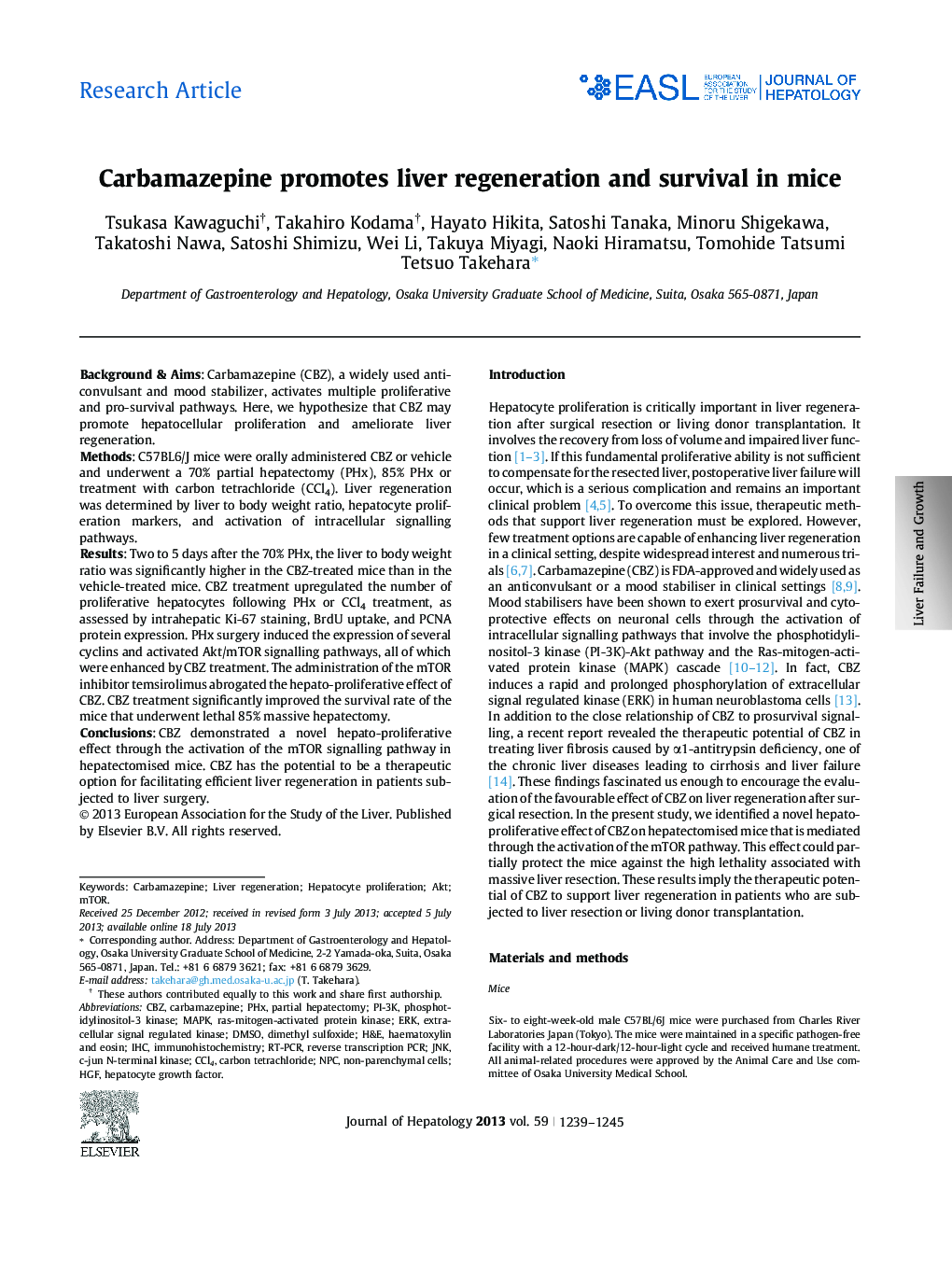| Article ID | Journal | Published Year | Pages | File Type |
|---|---|---|---|---|
| 6103986 | Journal of Hepatology | 2013 | 7 Pages |
Background & AimsCarbamazepine (CBZ), a widely used anticonvulsant and mood stabilizer, activates multiple proliferative and pro-survival pathways. Here, we hypothesize that CBZ may promote hepatocellular proliferation and ameliorate liver regeneration.MethodsC57BL6/J mice were orally administered CBZ or vehicle and underwent a 70% partial hepatectomy (PHx), 85% PHx or treatment with carbon tetrachloride (CCl4). Liver regeneration was determined by liver to body weight ratio, hepatocyte proliferation markers, and activation of intracellular signalling pathways.ResultsTwo to 5Â days after the 70% PHx, the liver to body weight ratio was significantly higher in the CBZ-treated mice than in the vehicle-treated mice. CBZ treatment upregulated the number of proliferative hepatocytes following PHx or CCl4 treatment, as assessed by intrahepatic Ki-67 staining, BrdU uptake, and PCNA protein expression. PHx surgery induced the expression of several cyclins and activated Akt/mTOR signalling pathways, all of which were enhanced by CBZ treatment. The administration of the mTOR inhibitor temsirolimus abrogated the hepato-proliferative effect of CBZ. CBZ treatment significantly improved the survival rate of the mice that underwent lethal 85% massive hepatectomy.ConclusionsCBZ demonstrated a novel hepato-proliferative effect through the activation of the mTOR signalling pathway in hepatectomised mice. CBZ has the potential to be a therapeutic option for facilitating efficient liver regeneration in patients subjected to liver surgery.
